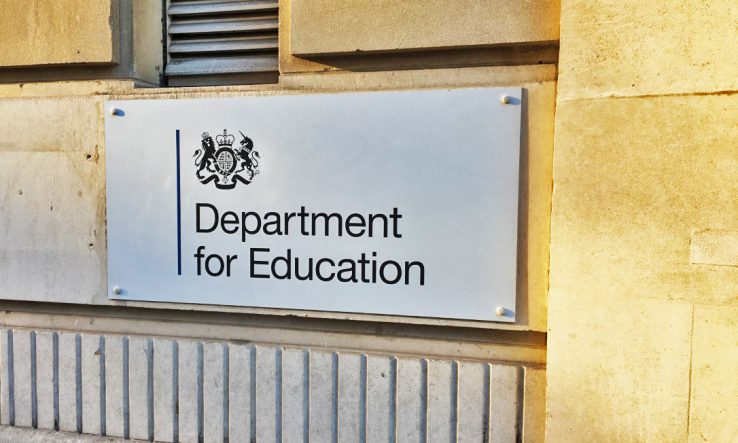
Department says information about emergency Covid fund is commercially sensitive
The Department for Education is refusing to release information relating to its higher education restructuring regime—the fund that was set up to help universities that needed financial assistance as a result of the Covid-19 pandemic.
Ministers launched the HERR in July 2020 with the intention of offering loans to institutions that required financial help. In return for the money, the government could request the institution make certain changes, such as reducing vice-chancellor pay levels or selling off “unviable campuses”. The scheme closed to applicants in December 2021.
In October last year, Research Professional News submitted a freedom of information request asking for a list of institutions that had accessed the fund, the date they accessed it, and the monetary value of any support they accessed.
In its response, the DfE said it would not release the information because it was likely to prejudice the commercial interests of those institutions that had accessed the fund.
“To make public the information you have requested could cause significant unwarranted reputational damage to any institutions that have accessed the HERR,” the DfE said.
Research Professional News then made a second freedom of information request in November 2021, asking only for the number of institutions that had accessed the HERR—not the names— and the total amount paid out.
In its response, the DfE said that “over 10” institutions had “made enquiries” to the Higher Education Restructuring Regime unit.
“We cannot provide an exact number as some were made anonymously and therefore could have been duplicate enquiries from the same institution,” Research Professional News was told. “It should be noted that not all institutions who contacted the regime applied, or were accepted.”
The DfE refused to release information about how much public money had been loaned to institutions under the regime, again citing potential damage to commercial interests in its reasoning.
“[A] public interest test has been carried out,” the DfE said. “In doing so, the following factors have been taken into consideration: the public’s interest in understanding how public funds are spent [and] the institutions’ ability to compete competitively within their market.”
Breach of confidence
Research Professional News appealed the decision on the basis that, since no institutional details had been requested, releasing the information would not damage any commercial interests. The appeal was unsuccessful.
“When accessing the HERR, institutions have requested that this be handled in confidence, as they fear that release of their names may inadvertently have a detrimental impact on their commercial interests,” the DfE said in response to the appeal.
Releasing the information might be seen as a “breach of confidence” and “would be likely to negatively impact the department’s working relationships with these institutions, making it more difficult to engage with them in the future to deliver key HE policies,” the DfE said.
The department added that releasing the information might result in a detrimental impact on an institution’s student and staff recruitment, or “the financial failure of an institution leading to their inability to repay monies funded to them from the department”.
Effective conduct
In addition to the potential damage to commercial interests, the DfE said it had also considered whether releasing the information would prejudice—or be likely to prejudice—the effective conduct of public affairs.
“In relation to your request, a minister has decided that, in her reasonable opinion, disclosure of the number of institutions who have accessed the higher education restructuring regime, and the total amount of money that they received, is likely to have this prejudicial effect,” the department said.
“The release of the information could lead to a detrimental impact on the department’s ability to deliver the HERR policy if institutions are deterred from applying for fear that their application may become public.”
In its appeal, Research Professional News pointed out that since no institution-level details were being requested, there was no reason to expect publication of the information to impact in any way on any individual provider.
In response to that specific point, the DfE said: “Although…we cannot provide you with specific examples of any applications submitted, please be assured that the panel had access to all factual details relating to the HERR and came to the conclusion that the release of the information you requested could jeopardise the competitiveness of those institutions in question.”
Research Professional News will be appealing the DfE decision via the Information Commissioner’s Office.